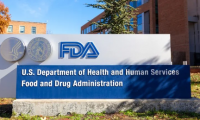-
Dragonfly and Gilead enter partnership for cancer therapy
- Source: drugdu
- 473
- February 19, 2024
-
Regeneron and Sanofi’s Dupixent bags fifth drug label in Japan
- Source: drugdu
- 470
- February 19, 2024
-
QBiotics wins FDA orphan status for rainforest-derived cancer drug
- Source: drugdu
- 284
- February 19, 2024
-
Otsuka wins FDA breakthrough therapy designation for IgAN drug
- Source: drugdu
- 272
- February 19, 2024
-
Sarepta’s Elevidys makes advances towards expanded DMD label
- Source: drugdu
- 424
- February 19, 2024
-
PlaqueTec and Babraham Institute partner for treatment of coronary heart disease
- Source: drugdu
- 349
- February 18, 2024
-
Smiths Medical recalls syringe pumps for software malfunction
- Source: drugdu
- 336
- February 17, 2024
-
Smiths Medical recalls syringe pumps for software malfunction
- Source: drugdu
- 434
- February 17, 2024
-
GSK to license Elsie’s oligonucleotide discovery platform
- Source: drugdu
- 404
- February 17, 2024
your submission has already been received.
OK
Subscribe
Please enter a valid Email address!
Submit
The most relevant industry news & insight will be sent to you every two weeks.

















